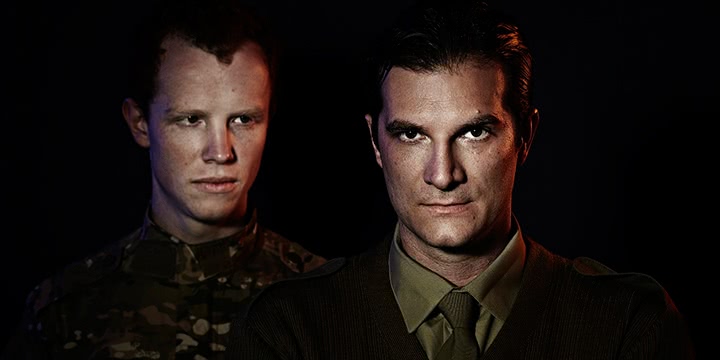At first glance, a play written by UK comedian (and soon to beQIhost) Sandi Toksvig promises to be a hilarious romp through all things cheeky and irreverent.
But as the opening of Bully Boy approaches, the story of lives undone by the psychological horrors of war is no light amusement. The traumas endured by returned servicemen and women is a growing scourge not only in the world of the play, but across Australia itself, where Vice Chief of the Defence Force Ray Griggs has conceded the exact number of veteran suicides is unknown. Bully Boy director Deborah Mulhall reflects on how the voice of a comic like Toksvig can sometimes be the strongest insight into tragedy.
“I think a good comedian always has that different perspective, that way of looking at things which is just a little skewed,” Mulhall says. “Their perspectives are always creatively unique. They just see the world a little differently, and perhaps more cynically than most people do. But certainly there’s a creative difference in their viewpoint. I don’t think any comedian sees the world as the majority do, and it’s that ability to disassociate from the mass view that makes them funny, that gives them the observations, that makes them interesting. The only way to deal with the despair, which would be inevitable when one sits back and views the world, is to turn it on its head and make it funny.”
Mulhall’s interests in the play have been brewing for some time. Following a former production that shared themes with Bully Boy, Mulhall’s fascination with the psychological scars that so many veterans carry with them led to the tag line, ‘In War, Not All Wounds Are Visible’.
“I did a play with similar issues last year called Britannia Waves The Rules, and it was looking at the effects of going to war in Afghanistan, which is not a war with a front. It’s an insurgency, where we just take young men and teach them how to kill people, and then put them in this foreign land where nobody wants them to be. And then when they finish, we expect that they can just go back and live a normal life. That’s such an unrealistic expectation to ask of any human being.”
Mulhall is right to make such a claim, having spent time discussing the realities of war with real soldiers. She has brought a true and troubling insight into Toksvig’s celebrated play.
“I was in England last year, and by sheer chance I ended up in a pub talking to three young men who were in the British Army. I came up with such a stronger understanding of how they think, what they think. They have a duality of feeling about the army. It gives them a sense of purpose and belonging, but at the same time it puts them through the most horrific experiences. But what I found most interesting, and something I tried to pump into rehearsals, is that what they learned in the army is that they are not fighting for Queen or country. They were fighting for each other.
“Soldiers have said to me as soon as they go on leave, all they do is worry about the mates they leave behind. What if one of them gets injured because you weren’t there? They never blame the enemy for a friend dying, though they of course call them abusive names. But if one of their mates die, they blame themselves. If their mate gets shot, steps on an IED [improvised explosive device], their reaction is, ‘Well, if I had taken better care of him, this wouldn’t have happened.’”
Bully Boy runsThursday March 10 – Saturday March 26 at the Blood Moon Theatre, The World Bar.

































